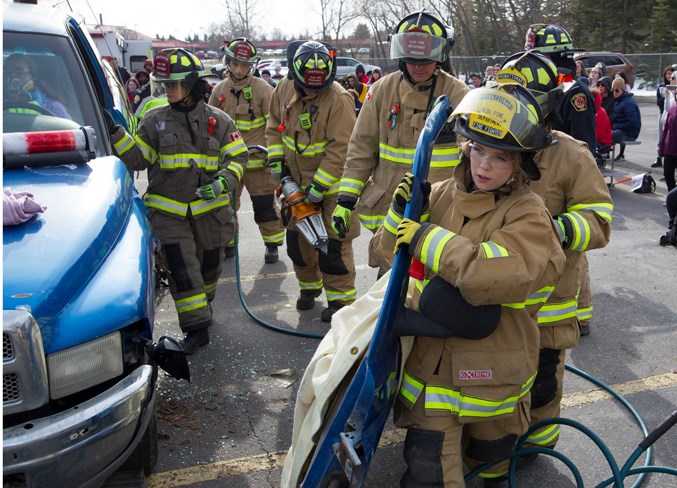Crews at accident scenes frequently encounter some pretty horrible situations, including the need to work alongside dead bodies.
That's a lot to deal with, so as a result, some workers can suffer post-traumatic stress disorder (PTSD).
PTSD is sustained emotional stress that tends to occur as a result of injury or severe psychological shock. It's well known in the military but can affect people in other walks of life as well.
Those who suffer from it constantly recall the experience that set off the condition and can have difficulty sleeping as well as problems relating to others.
"It is not uncommon for us to have to work around a situation where there might be a dead body contained right within inches of where we're working," fire Chief Justin Andrew told students attending a mock collision at the Church of Jesus Christ of Latter-day Saints on May 1.
"If you think about the psychological trauma that that causes first responders, it's not normal for people to have to work in an environment in close proximity to somebody who has just been killed, due to trauma or whatever.
"And so, it takes incredible focus and professionalism of our responders to maintain our composure and to continue to work diligently to help those who need it," Andrew added.
He said it used to be that first responders were expected to be tough and suck it up when they encountered situations like this. Now, they know an important part of wellness is assisting those who encounter these situations.
"After these incidents, we have what's called a defusing, where we sit down and talk about this, because this has a huge impact in all of our responders' lives," Andrew said, adding there are now emotional and mental supports in place for first responders.
"These events can trigger a trauma event in our responders that they can carry with them for the rest of their lives and so we try to minimize that impact as much as we can," he said.
"But the reality is that this is a job that we have to do and so anything that we can do to prevent this from occurring — obviously from the perspective of the safety of the people but (also) the safety of our own people, is important."



